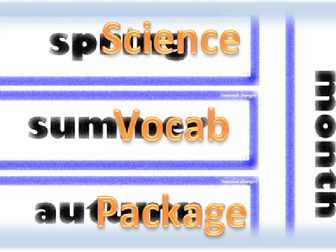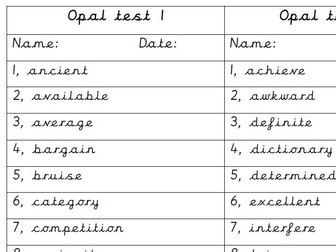Whole school Science vocabulary display for KS1 or KS2
<p><strong>Description</strong>:<br />
• Over 600 vocabulary cards</p>
<p>• These science vocab cards are based on ‘progression in vocabulary’ across KS1 and KS2. Words are relevant to National Curriculum content for specific year groups.</p>
<p>• Where possible, words used in previous year groups/units are omitted for older year groups, to avoid repetition and clutter.</p>
<p>• They are designed to be used as part of science displays where the words are large enough to be read from anywhere in the classroom. There are blank cards for teachers to write on their own words relevant to<br />
the topic.</p>
<p>• Each file contains blank vocab boxes for teachers to write their own words if needed</p>
<p>• Each word has the unit title and year group on it for ease of organisation.</p>
<p>• Word outlines colour coded red for chemistry, blue for physics and green for biology.</p>
<p>• Files are set to A3 size.</p>
<p>• Editable publisher files available on request</p>
<p><strong>Ideas for display:</strong><br />
• In our context, vocab sets were given to year groups to trim, laminate and build into a vocab ladders using treasury tags that can simply be pinned to the wall (see photo).</p>
<p><strong>Advice for use:</strong><br />
• Can be used for independent writing, or verbally based elicitation or assessment work with science.</p>
<p>• As with any display, they only have an impact if incorporated into planning/teaching of science lessons.</p>
<p>• Great for promoting this exciting subject across the whole school/key stage/year group in a consistent way.</p>

